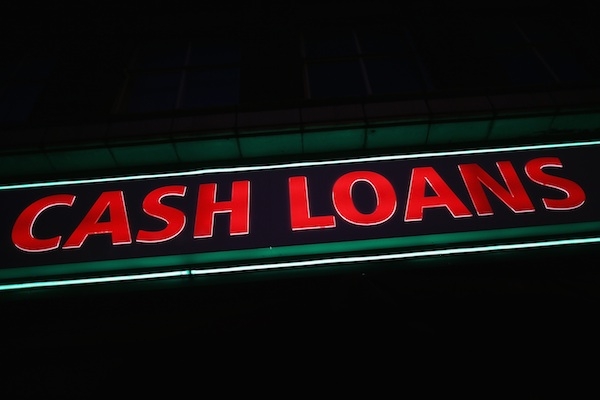Payday loans and pawnbrokers are a common feature of the nation’s high streets today, as they have been for centuries. Recently however they have experienced something of a boom. Now they are also going online and increasingly advertising their products on TV. One company in particular – Wonga – has become something of a household name. All of this has provoked calls for the sector to be regulated or even outlawed.
Now we have a summit and a lot of public statements from politicians to the effect that the activities of payday loan companies are uncompetitive and against the public interest. This kind of policy agenda is wrong on a number of grounds.
It would firstly be wrong in itself, as it would prohibit a voluntary transaction between consenting adults that does not cause direct or immediate harm to anyone, and certainly not to third parties. In economic terms such action would also be misguided and would harm the people it is intended to help, the poor.
Most attacks on payday loans and pawnbrokers cite truly eye-watering rates of interest but this is deeply misleading. The figures cited are for Annualised Percentage Rates (APR) but these only truly apply if the loan is repaid over a long period of something close to a year or more.
In fact, loans from payday lenders are almost always paid off over a very short time period (typically days or one to two weeks) so the actual amount of interest paid is nothing like that suggested. Loans of this kind are not for large purchases or for servicing over a long period – they are intended to provide needed cash in the very short term. They are a mechanism for letting very poor people (and others as well) get needed short term liquidity. This is done on the basis of the only kind of security many poor people have, future income from employment, or personal possessions.
As such, short term lenders such as payday loan companies are very valuable and their absence would make short term cash-flow problems much more serious and harmful than they otherwise need be for many people. If cash is needed in the very short term to meet a utility bill, for example, far better that the liquidity be provided in the short term and the bill be paid than that somebody have their power cut off or be put on a punitive payment schedule that would last a lot longer.
Evidence shows us that bans and restrictions can often make a difficult situation more difficult still. For example, interest caps in France and Germany saw financial breakdowns – such as bankruptcy – rocket to five times the UK’s level amongst people with debt troubles.
Even more likely, the demand for these kinds of loans would remain but would now be met by truly unsavoury characters. If you want to help loan sharks and low life money lenders then restricting legitimate firms such as Wonga is the way to go.
Politicians are sending out very mixed messages. They want to limit lending from companies such as Wonga, but simultaneously complain that major banks are not lending enough to relatively risky small businesses. It would be a grave error indeed to credit politicians with the wisdom to determine what interest rates should justify what loans.
Dr Steve Davies is Education Director at the Institute of Economic Affairs





Comments